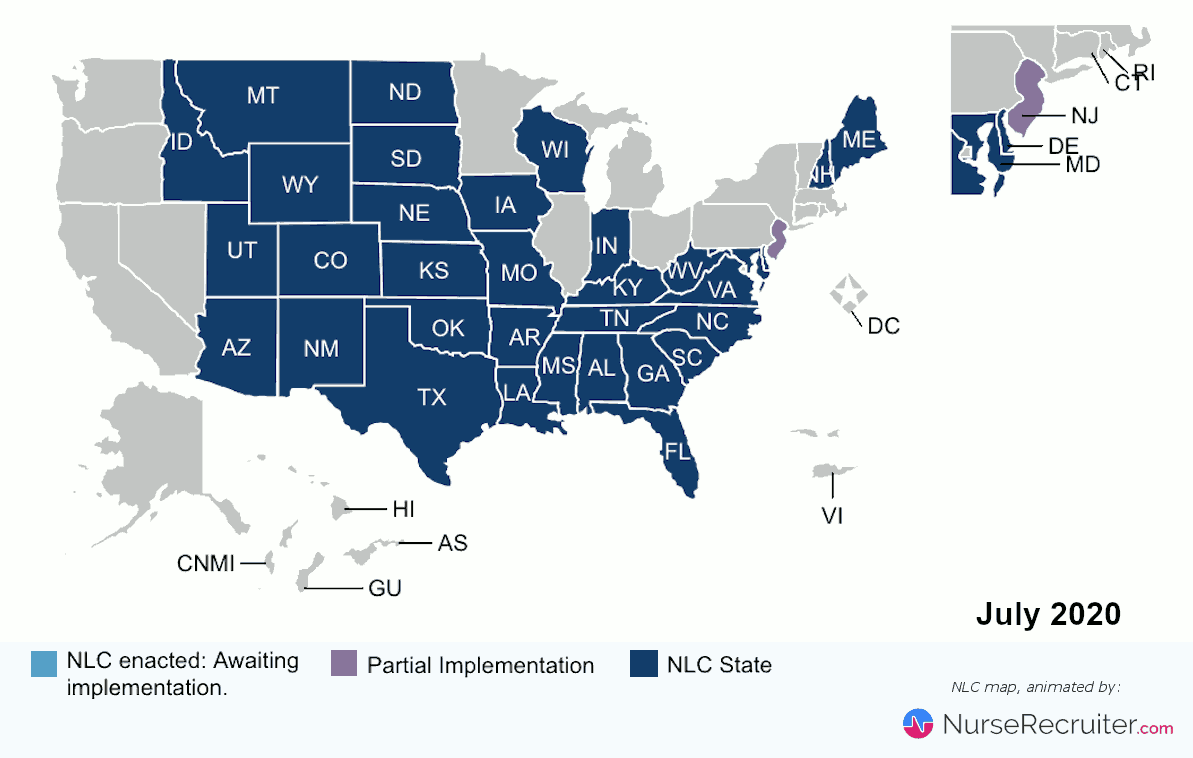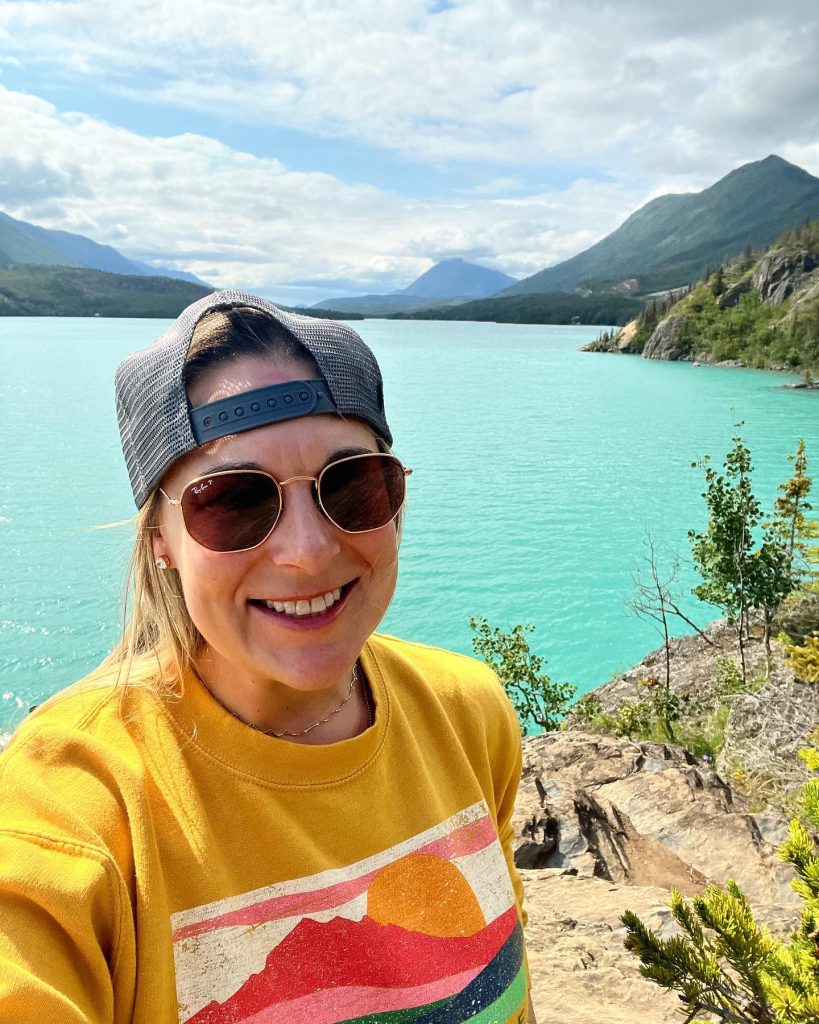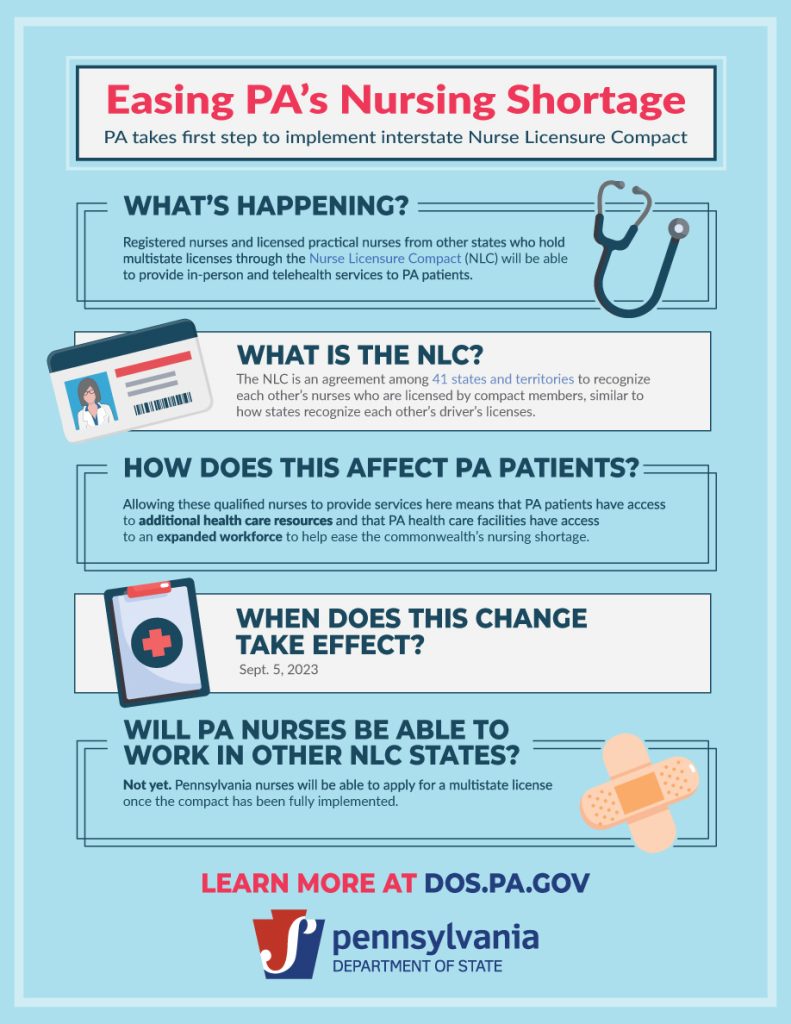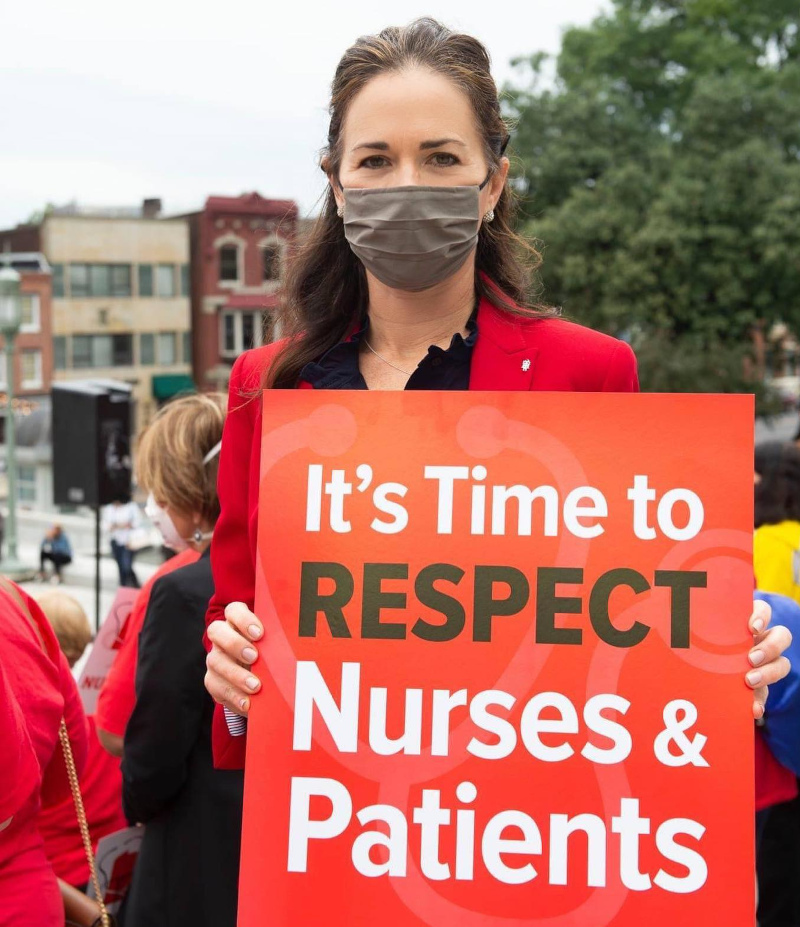Nurses sound off about the states which still refuse to join the NLC — but there’s good news from Pennsylvania!
“Imagine the challenge of driving across state lines if you were required to obtain a [driving] license from every state in which you were going to drive.” It wouldn’t make any sense, right? It would be a right royal pain… and definitely deter people from even trying.
Yet that’s what many states are still doing to their nurses. A lot of nurses would love to move to wherever they are needed most and provided the compensation they deserve. But they face burdensome licensing fees and paperwork because their state hasn’t joined the Nurse Licensure Compact.
We do have some good news, though! Just last week, a major state made important progress. We’re going to tell you more about that, but first we want to let you explain in your own words why this is all is so important!
“Come on — get with the program!”
The driving license analogy was suggested by Dr. Timothy J. Babineau, president and CEO of Lifespan in Providence, Rhode Island, and Cathy E. Duquette, chief nursing executive. But you didn’t need these execs to tell you what to think. You already let us know, loud and clear!
I live in Washington DC and am so frustrated they aren’t part of the compact! How can I take action to help DC move towards joining!?
— Lisa
In our last update about the multistate nurse licensure compact, we told you that the state of Washington had just partially implemented the eNLC, and Ohio fully implemented it earlier this year. But, we added, “the few states stubbornly holding out include some of the largest of the country, like California and New York” — and draft NLC laws are still languishing in eight legislatures.
Enough, we said! Make life easier for travel nurses. For nurses who live close to state borders. For nurses who have to suddenly move states through no choice of their own. “We’re deep into the 21st century. Let’s get this journey done!”
Turns out, you couldn’t agree more. “Thank you for taking a stand,” wrote Patricia Jarvis. “Come on, IL – get with the program,” wrote Denise Knoblauch: “Show that you are forward thinking.”
Massachusetts, please pass the NCL bill!
— Mary Zizzo
“What will it take to get Michigan to wise up??,” asked Pamela Borello: “This is so detrimental to patient care. We’ll all be patients at some point in time.” From Massachusetts to Oregon, you wrote in to say your patience was running out, and described the problems you were running into.
I have a Pa license and would really like to see change. A compact license should be nationwide, we as nurses should have a say.
— Denise Ott
Even though she already has an Oregon license and a multistate license, Selina Deal vented, “I’m applying for the California license and been waiting for three months”. Pam Walker, a Florida nurse who applied for a NY license back in March, was “still waiting” five months later.
“I had a critical need job offer that I accepted to start in July, but couldn’t get the license and I’m still dealing with red tape,” Pam recounted. She paid substantial sums to apply for the license and provide transcripts and proof of licensing, only to end up taking a job in Ohio without any hassle because the state had joined the Compact.
“It’s just crazy, every nurse takes the NCLEX, we should be able to work anywhere in the US and not pay for extra licensing.”
Pennsylvania partially implements the NLC
But we promised you some good news, and it’s pretty big! As of exactly one week ago, RNs and LPNs who hold an active, unencumbered multistate license are allowed to practice in Pennsylvania.
It’s a first step to fully implementing the NLC in the state, but it should help “ease Pennsylvania’s severe nursing shortage, alleviate burdens on overworked nursing staffs, make conditions safer for both patients and healthcare workers, and increase patients’ access to in-person and telehealth care”.
It was a matter of great urgency too, because an industry survey last year “showed vacancy rates of 30% for RNs providing direct care” — up by 10 percentage points since 2019. Pennsylvania is set to be short more than 20,000 RNs by 2026, according to a report by The Hospital and Healthsystem Association of Pennsylvania (HAP).
Not for the first time, it was a nurse-turned-politician who helped drive progress. Rep. Bridget Kosierowski, who sponsored the bill that led the push for joining the NLC in the state House, was elated at the announcement: “as a nearly 30-year registered nurse, I am very clear about the critical need for increasing the number of nurses in our Commonwealth.”
Her counterpart in the Senate, Lisa Boscola, added that “our hospitals and health care systems need nurses now. Allowing nurses who have a compact license from another state to start work without unnecessary bureaucratic hoops to jump through is a great first step.”
The next step, of course, is to give nurses in Pennsylvania itself the chance to apply for a multistate license. One of the reasons for the delay is that the process of performing an FBI criminal background check on applicants requires FBI authorization. The state has vowed to “fully implement the NLC as quickly as possible once we receive FBI approval”.
What the pandemic taught us
When you resoundingly joined our call to make every state a compact state, more than one of you invoked the lessons of Covid-19. With the pandemic surging at different times in different states, flexibility was key — yet politicians in non-compact states had to improvise emergency measures while hospitals filled up. The next time disaster strikes, being a compact state will help.
I moved home to New York and unfortunately New York is not a Compact State. It would be very easy for me to work in the surrounding states if this could happen. I think it’s important that this happens considering what we’ve been through with Covid.
— Pearl Murphy
Marina Slotterbach was especially articulate about it: “It’s imperative that nurses have the freedom to work in all states, and after the pandemic the need for nurses is painfully urgent for communities and all age groups of citizens. The nurse shortage is alarming! All states need to get on board with joining in the compact. Times are different, people need to unite more to benefit all.”
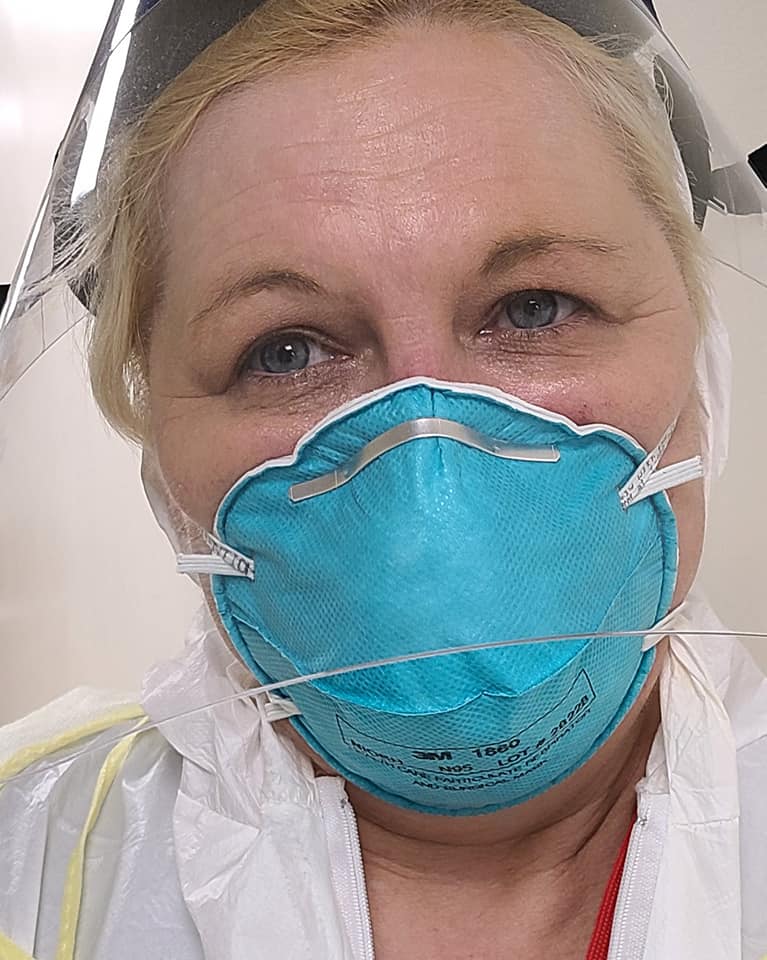
Rhode Island, Babineau and Duquette noted in their op-ed, is a uniquely aggravating case. It participated in the multistate nurse licensure compact for some ten years only to find itself on the outside again in 2018 with the introduction of the eNLC, because the state failed to pass the enabling legislation. It was the only one of the original participating states that did not rejoin.
All states should allow an RN to practice in any state. Patient care is the same across the board, especially if you specialize in a specific area. We need good traveling nurses, and we need the flexibility and ease to practice wherever needed.
— Monica
Now, they argued, “Rhode Island has become more disadvantaged, because nurses have more options to go to states that do not require a separate state licensing fee or the added burden of licensing paperwork, and waiting for a review and approval process for a license”.
They’re right: when a state remains outside the Compact, everyone loses. Hospitals, who can’t quickly hire new nurses from out of state to meet urgent needs. Nurses, who face needless obstacles in doing their job. And patients, who are victimized when an understaffing problem could have been addressed sooner.
California needs to get on board with joining the NLC. It would help the state in our struggles of short staffing, burnout and nurses leaving due to being overworked.
— Karen Franklin
When it comes to the NLC, Babineau and Duquette conclude, “Our patients, and our nurses, deserve nothing less.” Judging on your response, nurses agree!

